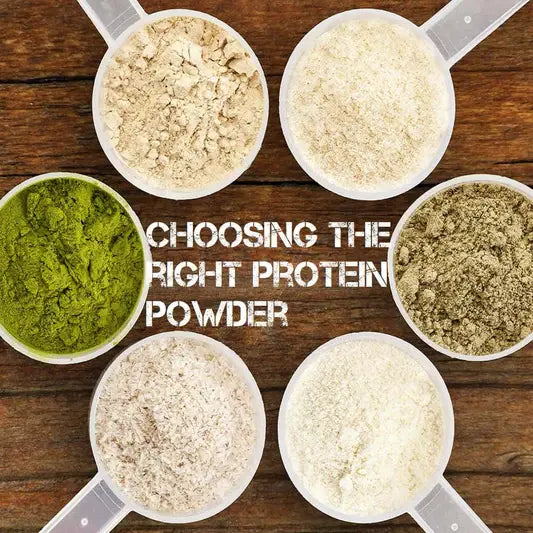Needing to pick up a new protein powder? UGH.... So many options, flavors, brands, ingredients. The list goes on and on. Figuring out what one is best for you can seem overwhelming and we get it. So let's take a few minutes to help clear that up and get you headed in the right direction.
The problem with this mindset is that there are actually several different types of protein out there, and depending on your fitness goals and reasons for taking protein, the type of protein you bought may not the type that is the best option for you. We won’t discuss any “ground rules” about what added ingredients to look for and stay away from, that is for another time, but let’s take a minute to go over a few different options available and how they differ to better help you meet your goals:
Whey protein is the most recognizable and mainstream of all the protein powders available and is the most popular for building muscle and meal replacement options for good reason. This is because whey protein often tastes very good and gives you all the amino acids your body needs to recover from workouts and help your body build muscle.
Whey protein is rapidly digesting and since it contains the amino acids your body needs for recovery, it is often taken immediately after a workout to help rebuild and repair your broken down muscle fibers to aid in adding lean muscle mass.
Whey protein is “concentrated” by taking out the non-protein parts of the food sources used and refining it to contain 70 to 85 percent pure protein. Additional processing removes a higher percentage of the non-protein content from the food source and creates an “Isolate” protein that is lower in fats and carbohydrates and yields up to 95 percent pure protein.
Plant proteins (pea, soy and rice are most common) are great for those that are sensitive to dairy/milk type proteins such as whey and casein protein. They are often slower digesting proteins and do not “fluff” like dairy proteins, which makes them a good choice for baking. The slower digestion doesn’t make them ideal to take early in the morning or immediately after a workout.
Most contain the amino acids you need but before jumping to a plant based protein you should evaluate your diet and research which plant based option will provide you with the most benefits when added to your current eating habits.
Casein protein is a much slower digesting protein found in milk that feeds your muscles over time, unlike the immediate release you get from whey. Since the digestion of casein protein takes several hours, it is the ideal choice for meal replacement shakes and often taken before bed to help slow-feed amino acids to your muscles as you rest.
With casein protein digesting much slower, it will also keep you full for a lot longer, which can be ideal for maintaining muscle mass at times in which you are cutting body fat. Casein is dairy however and may not be the best for those that are sensitive to dairy products.
Takeaway
In today’s market there is pretty much a protein powder out there for everyone. Like most other products in any market however, you often “get what you paid for.” Cheaper proteins are often LOADED with artificial fillers and often don't digest as easily. It should also be noted that protein powders should not replace whole foods in your diet. They should be supplemented to a healthy diet of whole foods to help you reach your goals.
*Disclaimer: These statements have not been evaluated by the Food and Drug Administration, and is not intended to be used for specific individual nutrition counseling needs.

